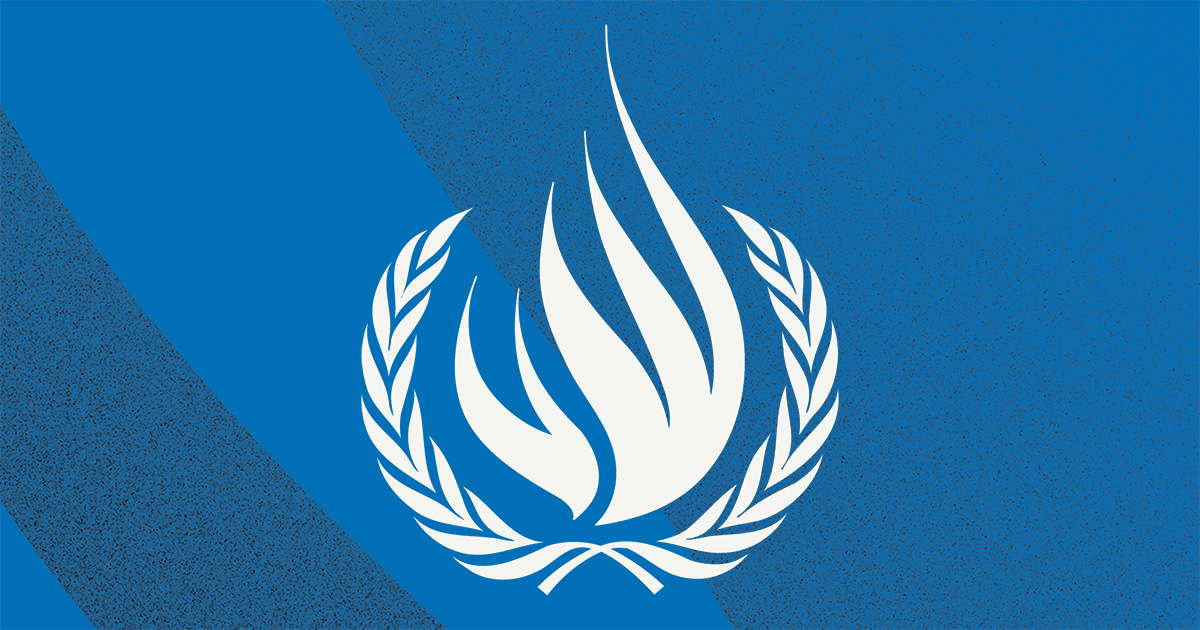
GENEVA – The growing use of and overcompliance with unilateral coercive measures call for development of ways to monitor and assess their adverse human rights and humanitarian impact, an independent expert said today.
“Clear information and precise data and statistics are of crucial importance to identify the humanitarian impact of unilateral coercive measures, further raise awareness about their destructive nature, as well as to enable States and other actors to respond to such measures, including through advocacy, actions and policies,” said Alena Douhan, the Special Rapporteur on the negative impact of unilateral coercive measures on the enjoyment of human rights.
In her thematic report to the UN Human Rights Council, Douhan described her mandate’s work for the development of an online Monitoring and Impact Assessment Tool, accessible to all actors working on sanctions-related matters, governmental and non-governmental. It is a first step towards the development of an inclusive, comprehensive, systematic, transparent and evidence-based check of unilateral coercive measures and overcompliance.
“Currently, national efforts to monitor and assess the negative impact of unilateral sanctions are mostly limited to the collection of statistical data with mainly economic rather than humanitarian assessment. In addition, sanctions-related databases are mostly limited in scope and often developed with limited participation by relevant stakeholders,” the Special Rapporteur said.
“Information already submitted to the Monitoring and Impact Assessment Tool showcases the significant adverse humanitarian impact of unilateral coercive measures, means of their enforcement and over-compliance and their disproportionate effects on the most vulnerable, including but not limited to children, women, persons with disabilities, migrants and refugees, people suffering rare diseases, and those living in poverty.”
The expert called on sanctioning states to monitor and assess the possible humanitarian impact of their unilateral sanctions, in accordance with humanitarian and international human rights law obligations. She recommended the same to the United Nations, its agencies, entities, programmes, and UN country teams.
Finally, she recommended that States affected by unilateral sanctions take appropriate steps towards establishing national mechanisms for comprehensive and systematic monitoring and impact assessment.
Ms Alena Douhan (Belarus) was appointed as Special Rapporteur on the negative impact of the unilateral coercive measures on the enjoyment of human rights by the Human Rights Council in March 2020. Ms. Douhan has extensive experience in the fields of international law and human rights as, a Professor of international law at the Belarusian State University (Minsk), a visiting Professor at the Institute for International Law of Peace and Armed conflict, (Bochum, Germany) and the Director of the Peace Research Centre (Minsk). She received her PhD at the Belarusian State University in 2005 and obtained Dr. hab. in International Law and European Law in 2015 (Belarus). Ms. Douhan’s academic and research interests are in the fields of international law, sanctions and human rights law, international security law, law of international organizations, international dispute settlement, and international environmental law.
The Special Rapporteurs, Independent Experts and Working Groups are part of what is known as the Special Procedures of the Human Rights Council. Special Procedures, the largest body of independent experts in the UN Human Rights system, is the general name of the Council’s independent fact-finding and monitoring mechanisms that address either specific country situations or thematic issues in all parts of the world. Special Procedures’ experts work on a voluntary basis; they are not UN staff and do not receive a salary for their work. They are independent from any government or organization and serve in their individual capacity.
For more information and media requests please contact: hrc-sr-ucm@un.org
For media enquiries regarding other UN independent experts, please contact: Dharisha Indraguptha (dharisha.indraguptha@un.org) or John Newland (john.newland@un.org)
Follow news related to the UN"s independent human rights experts on Twitter @UN_SPExperts









